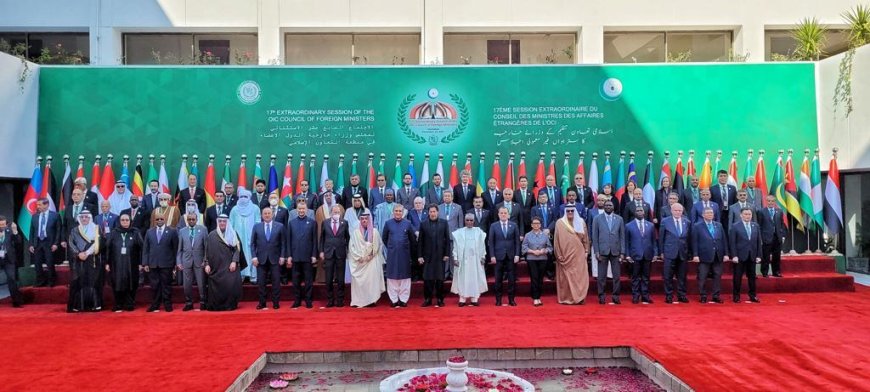The Organization of Islamic Cooperation (OIC) has expressed its strong support for the United Nations Secretary-General's decision to include the Zionist regime on the organization's blacklist. This move comes in response to the recent attack on a UNRWA school in Gaza, which resulted in the tragic loss of at least 40 lives.
UN Secretary-General Antonio Guterres conveyed his intention to include Israel on the list of governments accused of child murder, a decision warmly welcomed by the OIC. The organization's statement condemned the attack on the UNRWA school and underscored the importance of holding accountable those responsible for such atrocities.
Izzet Rashak, a member of the Hamas Political Bureau, hailed the decision to blacklist the occupation regime, asserting that it had caused consternation among Israeli officials. Rashak emphasized that the international community's rejection of the Zionist regime and the initiation of investigations against its leaders in international courts are significant steps towards justice.
Earlier, Secretary-General Guterres had condemned the attack on the UN-run school and called for an immediate cessation of hostilities in Gaza, urging the unconditional release of all hostages held in the region.
The reaction from Zionist media and officials has been predictably defensive. Israeli media outlets expressed concern over potential sanctions and repercussions for the Israeli army if it were recognized as a perpetrator of child killings. Israeli Foreign Minister Yisrael Katz warned of implications for Israel's relations with the UN due to its blacklisting.
In a contentious exchange, Gilad Erdan, Israel's representative at the UN, accused Secretary-General Guterres of bias and fostering hatred against Israel. Prime Minister Benjamin Netanyahu echoed this sentiment, denouncing the UN's decision and affirming the moral integrity of the Israeli army.
Despite Israeli objections, the UN's move represents a significant diplomatic stance against human rights violations in the region. The OIC's endorsement underscores the international community's commitment to accountability and justice in the face of ongoing conflict and suffering














































